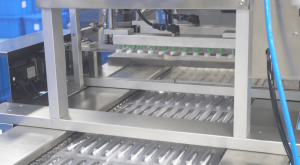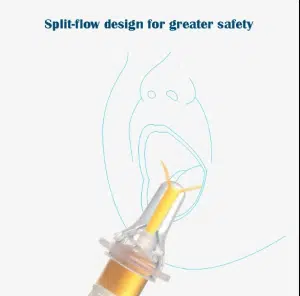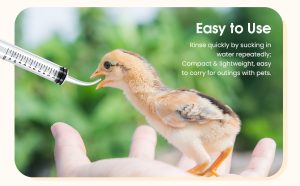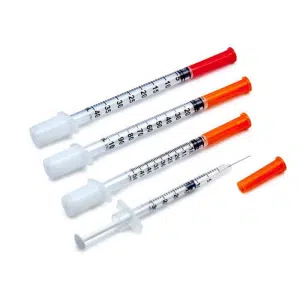As pet owners, when our furry companions need medical care, selecting the right medical equipment is crucial. One often overlooked but extremely important question is: do cats’ medical syringes and dogs’ medical syringes require different specifications? This question not only relates to medication dosing accuracy but directly impacts our pets’ health and safety.
Basic Principles of Pet Syringe Specifications
Universal Design with Specific Differences
From a technical standpoint, medical syringes for cats and medical syringes for dogs follow the same medical standards in basic design. However, in practical applications, different pets’ physiological characteristics and treatment needs do require consideration of different specification choices.
According to veterinary industry data, pet syringes are primarily divided into the following common specifications:
- 1ml: Suitable for small-dose medication, particularly appropriate for small animals
- 5ml: Medium-dose medication, suitable for cats and small to medium dogs
- 20ml: Large-dose medication, primarily used for large dogs and livestock
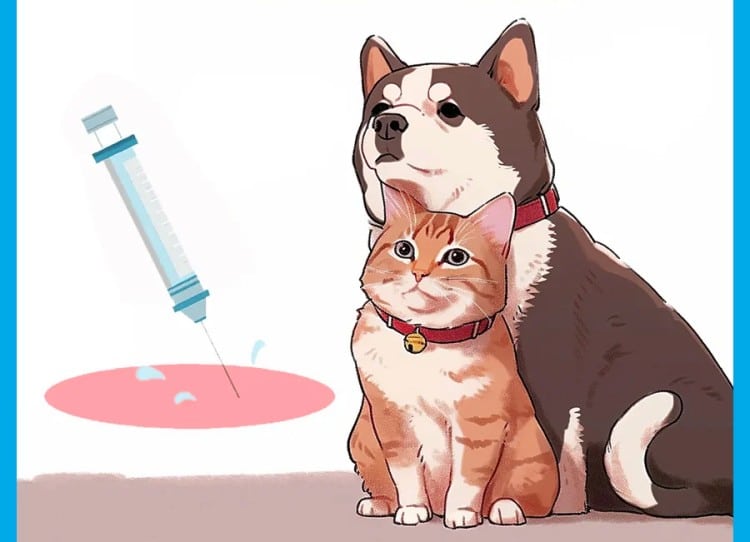
Special Considerations for Cat Medical Syringes
Cats, due to their unique physiological structure and behavioral characteristics, have special requirements in syringe selection:
Size Factors: Average domestic cats typically weigh between 3-5 kg, compared to large dogs that can weigh 30-40 kg, meaning enormous differences in medication dosages. Small-volume syringes (such as 1-3ml) can provide more precise dose control, reducing waste and medication errors.
Stress Response: Cats are generally more sensitive to medical procedures. Using fine needles and small-volume syringes can significantly reduce stress responses and improve treatment cooperation.
Insulin Treatment: For diabetic cats, U-40 or U-100 insulin syringes are typically used, with capacity specifications from 0.3ml to 1ml. These specially designed syringes can provide precise half-unit or full-unit graduations.
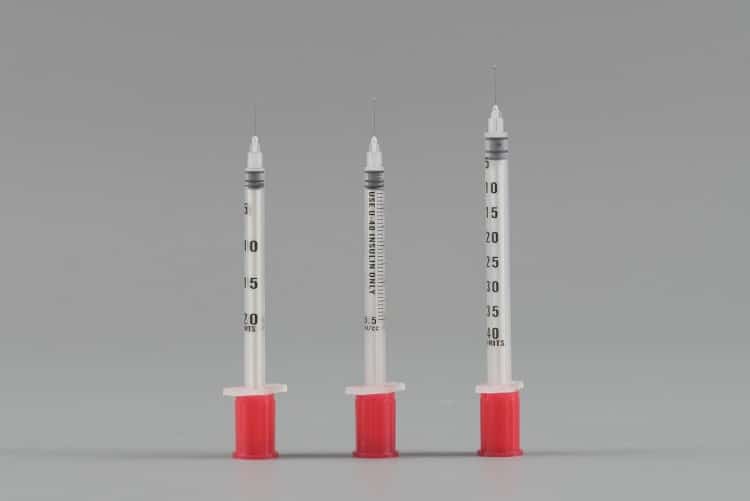
Dog Medical Syringe Specification Selection
Medical syringe selection for dogs must consider the enormous differences brought by breed diversity:
Wide Weight Range: From 2kg Chihuahuas to 70kg Great Danes, weight differences reach 35-fold. This difference directly affects medication dosage and syringe capacity selection.
Diverse Medication Types: Large dogs often require larger-capacity syringes for vaccines, antibiotics, or other therapeutic drugs. 5-20ml syringes are more common in large dog treatment.
Treatment Frequency: Certain chronic diseases like diabetes require daily injections, making syringe comfort and ease of use particularly important.
Professional Data-Supported Specification Selection
Precise Requirements for Insulin Syringes
According to veterinary diabetes management guidelines, insulin syringe specification selection follows these principles:
U-40 Insulin: Contains 40 units of insulin per ml, commonly used for veterinary-specific insulin U-100 Insulin: Contains 100 units of insulin per ml, mostly human insulin applied in veterinary medicine
Syringe capacity specifications typically include:
- 0.3ml: Maximum injection of 30 units U-100 insulin
- 0.5ml: Maximum injection of 50 units U-100 insulin
- 1ml: Maximum injection of 100 units U-100 insulin
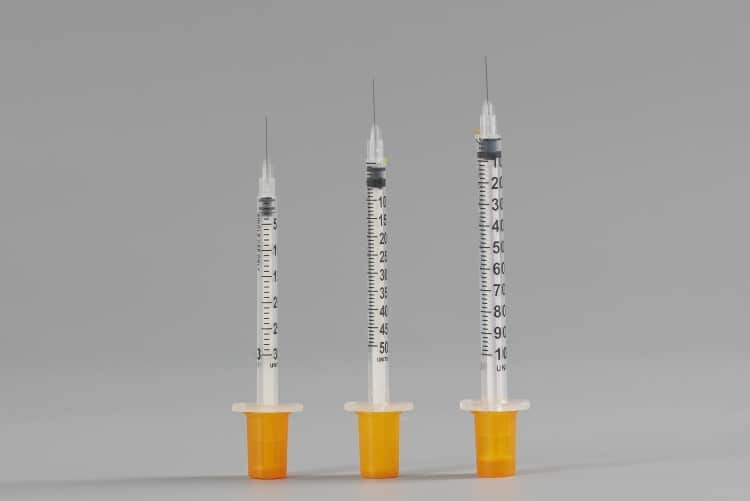
Standardized Requirements for Vaccine Injection
Pet vaccine injections typically follow standardized dosages, but syringe selection still requires considering animal size:
Small Dogs and Cats: 1-3ml syringes are most suitable, providing precise control of 1-2ml standard vaccine doses Medium to Large Dogs: 5ml syringes provide better operability and stability
Balancing Safety and Precision
Importance of Dose Accuracy
Inappropriate syringe specifications can lead to serious consequences:
Overdosing: Using oversized syringes may lead to dose estimation errors, especially when medicating small animals Insufficient Dosage: Undersized syringes may not deliver adequate doses at once, affecting treatment effectiveness
Complementary Needle Specification Considerations
Syringe specification selection also requires appropriate needle pairing:
Cats: Typically use 27-30 gauge needles, 1/2 inch length, paired with 1-3ml syringes Small Dogs: 25-27 gauge needles, 5/8 inch length, paired with 1-5ml syringes Large Dogs: 22-25 gauge needles, 1 inch length, paired with 5-20ml syringes
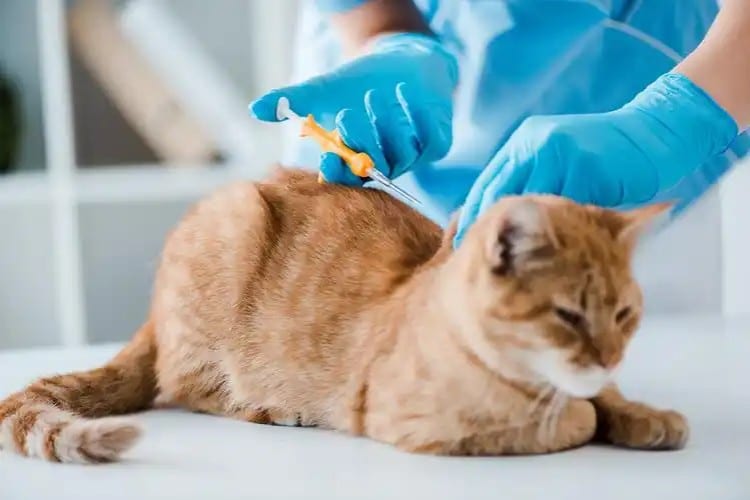
Standardization Trends in European and American Markets
In developed European and American countries, pet medical supplies have high standardization levels but still maintain targeted designs for different animal species:
FDA and EU CE Certification: Ensures products meet medical device safety standards Veterinary Professional Recognition: Product design fully considers veterinary operational convenience and animal welfare Material Safety: Uses medical-grade, non-toxic, non-allergenic materials
Selection Guide: Practical Recommendations
Selection Standards for Pet Owners
- Select Based on Pet Weight:
- Under 5kg: 1-3ml syringes
- 5-20kg: 3-5ml syringes
- Over 20kg: 5-20ml syringes
- Select Based on Medication Purpose:
- Insulin injection: Specialized insulin syringes
- Oral liquid medication: Needle-free syringes
- Vaccine injection: Standard medical syringes
- Consider Usage Frequency:
- Long-term use: Choose high-comfort designs
- Occasional use: Focus on precision
Professional Configuration for Veterinary Clinics
Professional veterinary clinics typically stock multiple syringe specifications to handle different situations:
Standard Configuration: 1ml, 3ml, 5ml, 10ml, 20ml various specifications Special Purpose: Insulin-specific syringes, needle-free oral medication syringes Emergency Backup: Adequate inventory of all specifications
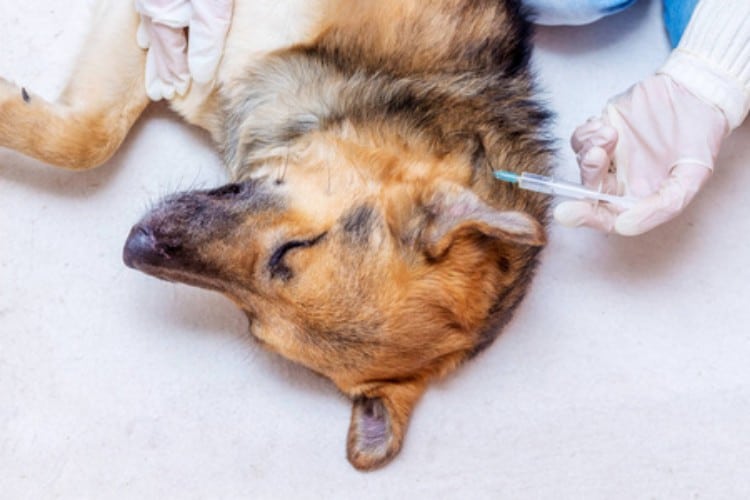
Future Development Trends
Pet medical equipment is moving toward more precise and user-friendly directions:
Smart Design: Integrated dose calculation and recording functions Material Innovation: More environmentally friendly and biocompatible materials Personalized Customization: Customized products based on specific breed and disease needs
Conclusion
While medical syringes for cats and dogs maintain consistency in basic principles, there are indeed differences in specific specification selection. These differences are primarily reflected in capacity size, needle specifications, and usage scenarios. Correct selection not only ensures medication treatment effectiveness but also improves pet comfort and safety.
As pet owners, we should select the most suitable pet syringe specifications based on our pets’ specific conditions under veterinary guidance. Additionally, choosing quality-reliable products that meet medical standards is also an important guarantee for ensuring pet health.
About Us
We are a professional pet syringe manufacturing factory dedicated to providing high-quality, safe, and reliable medical device products for the global pet healthcare market. Our products are strictly manufactured according to international medical device standards, certified by FDA, CE, and other authoritative bodies, safeguarding your pet’s health. For more product information or customized services, please contact us at any time.


